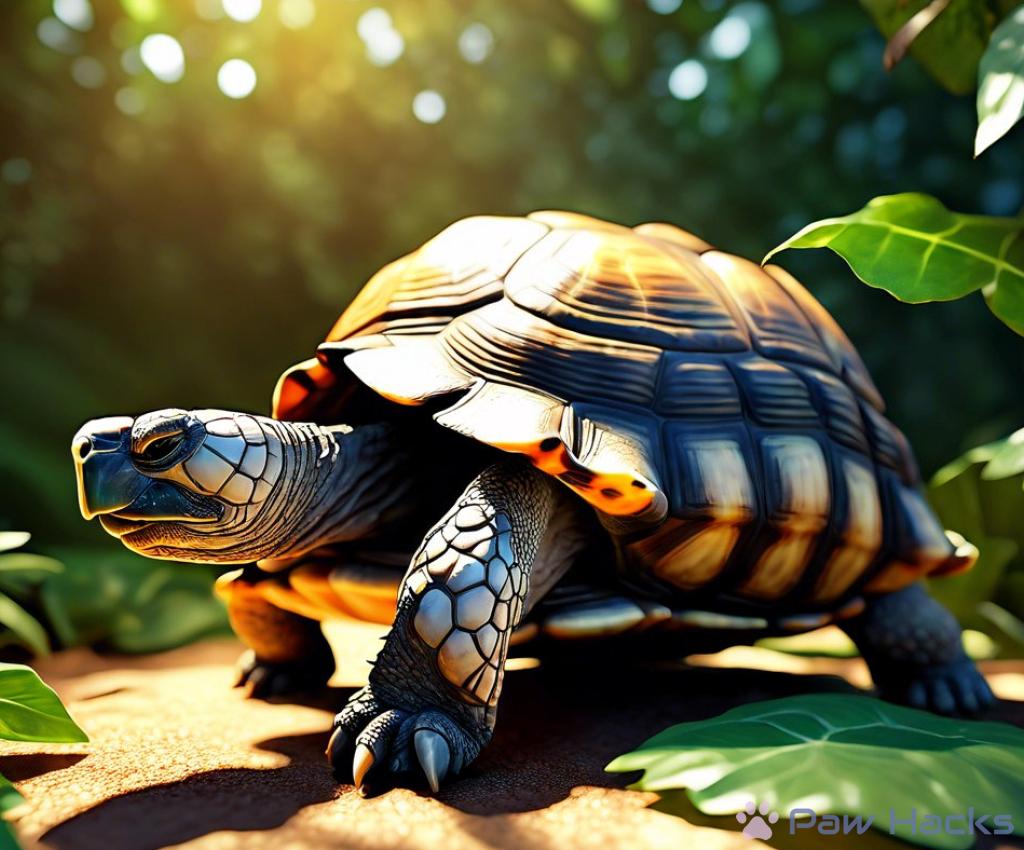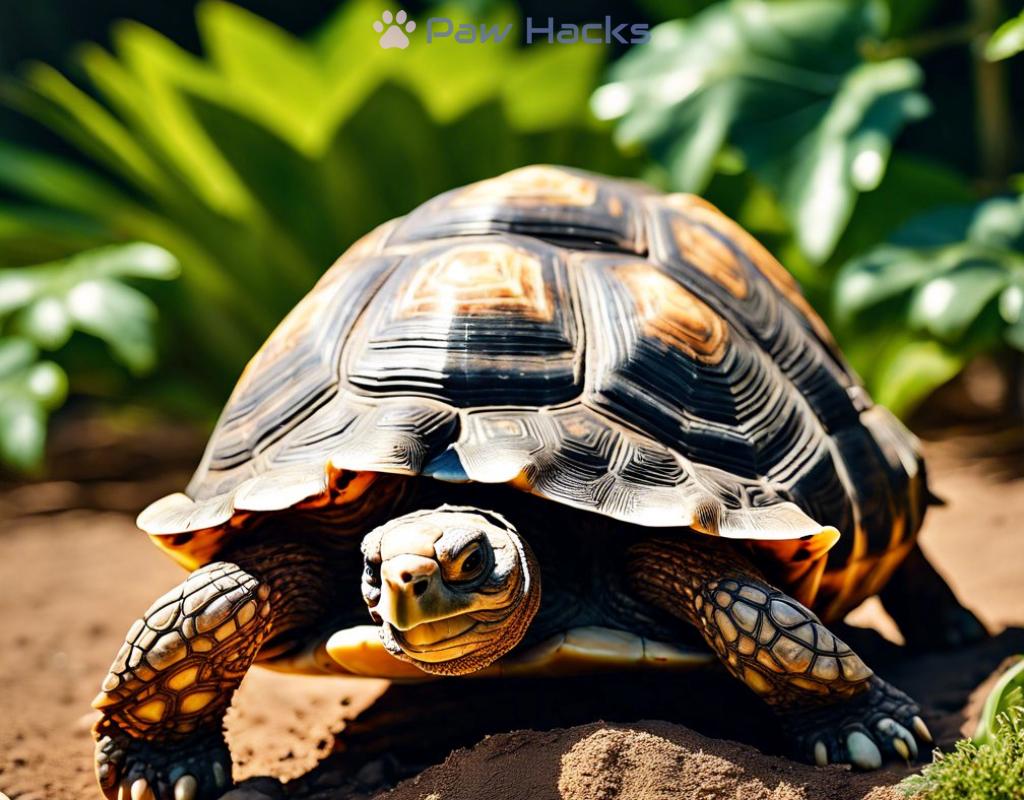Maintaining Healthy Shells in Tortoises
The Essential Guide to a Balanced Diet for Your Tortoise

Just like every living creature, tortoises require a balanced diet to thrive. Their shells, which are crucial for their protection and health, can be significantly affected by what they eat. A proper diet not only supports shell integrity but also overall well-being. This guide will explore the essential components of a tortoise’s diet, helping you ensure your shelled friend stays healthy and vibrant.
When it comes to feeding tortoises, it’s vital to provide a variety of foods that cater to their specific dietary needs. Different species of tortoises have unique requirements, so understanding what your tortoise needs is key to developing a healthy meal plan. Below is a list of essential food groups that should be included in your tortoise’s diet:
- Leafy Greens: A staple in any tortoise’s diet, leafy greens like kale, dandelion greens, and collard greens are packed with vitamins and minerals.
- Vegetables: Carrots, squash, and bell peppers can add variety and essential nutrients.
- Fruits: Treat fruits like strawberries, watermelon, and apples as occasional snacks due to their sugar content.
- Fiber: High-fiber foods like hay and grasses are critical for digestion.
- Calcium: This is vital for shell health; consider supplements or cuttlebone if necessary.
Now that you know the essential food groups, it’s time to create a balanced meal plan. A well-rounded diet contributes to a healthy shell and body. Here’s a sample weekly meal plan to inspire you:
| Day | Meal |
|---|---|
| Monday | Kale, Carrots, and Cuttlebone |
| Tuesday | Dandelion Greens and Squash |
| Wednesday | Mixed Salad (Greens and Bell Peppers) |
| Thursday | Hay and Watermelon (as a treat) |
| Friday | Collard Greens and Apples (small amounts) |
| Saturday | Hay and Mixed Vegetables |
| Sunday | Rest day with only hay and fresh water |
By following this structured meal plan, you can ensure your tortoise receives a variety of nutrients essential for their health. Remember to always provide fresh water and consult a veterinarian for tailored advice, especially if your tortoise has specific health concerns.
Understanding the Importance of UVB Light for Shell Health

To maintain the health and vitality of your tortoise, it is crucial to consider not just their diet but also their exposure to UVB light. Many owners overlook this vital aspect, yet it plays a significant role in the overall well-being of these remarkable reptiles. UVB light enables tortoises to synthesize vitamin D3, which in turn helps in the absorption of calcium—an essential mineral for strong, healthy shells.
Calcium is fundamental for tortoises, particularly for the development and maintenance of their shells. Without adequate exposure to UVB light, tortoises cannot produce enough vitamin D3, leading to calcium deficiency. This deficiency can result in soft or deformed shells, a condition known as metabolic bone disease. Therefore, it is important to understand that UVB lighting is not just an accessory but a necessity for your tortoise’s health.
When selecting UVB lights for your tortoise’s habitat, there are a few options available. The two main types are fluorescent bulbs and mercury vapor bulbs. Fluorescent bulbs are commonly used because they are effective and affordable. However, mercury vapor bulbs provide both UVB and heat, making them a great choice for outdoor enclosures or larger habitats. It’s important to replace these bulbs regularly, as their effectiveness can diminish over time, typically every 6 to 12 months.
Setting up the light correctly is also crucial. The basking area should be under the UVB light, as tortoises naturally seek warmth. This allows them to absorb the necessary UVB rays while basking. Moreover, make sure that the light is at an appropriate distance from the tortoise, as too much distance can reduce its effectiveness, while too close can cause burns.
While UVB light is essential, tortoises also need a balance of light and shade to regulate their body temperature. Providing both areas allows them to bask when needed and retreat to cooler, shaded spots to avoid overheating. This natural behavior is essential for their metabolic processes and overall health.
Ultimately, maintaining healthy shells in tortoises requires a multifaceted approach that includes a balanced diet and proper lighting. By understanding the importance of UVB light and implementing it correctly in their habitat, tortoise owners can significantly enhance their pet’s quality of life, ensuring strong shells and robust health for years to come.
How to Spot and Treat Shell Abnormalities Early
Recognizing and addressing shell abnormalities in tortoises is crucial for their long-term health and vitality. An abnormal shell can be a sign of underlying health issues that may require immediate attention. By being vigilant and knowledgeable, you can spot these problems early and take the necessary steps to ensure your tortoise remains healthy. Below are key indicators to help you identify potential shell abnormalities.
Observing your tortoise regularly can help you notice changes that may indicate shell issues. Here are some common signs to look for:
- Soft Shell: A shell that feels pliable or squishy may indicate a calcium deficiency.
- Discoloration: Unusual colors, such as yellowing or dark spots, can be signs of infection or other health concerns.
- Cracks and Splits: Physical damage to the shell can lead to infections and should be treated promptly.
- Deformities: An uneven or misshapen shell can signal metabolic bone disease or other issues.
Once you identify any abnormalities, it’s essential to react promptly to prevent further complications. Here’s what you can do:
- Consult a Veterinarian: Always seek professional guidance if you notice any of the signs mentioned above. A vet who specializes in reptiles can provide a thorough examination and recommend treatment options.
- Adjust Diet: Ensure your tortoise’s diet includes adequate calcium and vitamin D3. If necessary, add supplements to their meals to support shell health.
- Improve Habitat Conditions: Ensure that the tortoise’s environment includes proper UVB lighting and appropriate temperatures to promote healthy shell growth.
Preventing shell abnormalities is just as important as treating them. Regular check-ups with a veterinarian, combined with a balanced diet and optimal living conditions, can significantly reduce the risk of shell issues. Additionally, maintain a clean habitat to prevent infections and ensure your tortoise has access to both sunlight and shade for proper thermoregulation.
By being proactive and attentive to your tortoise’s needs, you can help ensure that their shell remains strong and healthy throughout their life.
Creating the Perfect Habitat for Strong and Resilient Shells
Creating a suitable habitat for your tortoise goes beyond just providing food and water; it plays a pivotal role in their overall health, particularly in maintaining strong and resilient shells. An optimal environment fosters a tortoise’s natural behaviors, allowing them to thrive and develop a robust shell. By focusing on their habitat, you can significantly enhance their quality of life and minimize the risk of shell abnormalities.
To ensure your tortoise lives in a healthy environment, consider the following critical components:
- Space: Tortoises require ample room to roam. A spacious enclosure allows them to engage in natural behaviors, promoting both physical and mental health.
- Substrate: Utilize a substrate that mimics their natural habitat. Options like organic soil and coconut coir are excellent choices for burrowing and ensuring a comfortable living space.
- Temperature Gradient: Establish a temperature gradient within the enclosure. Tortoises need a warm basking area alongside cooler zones, allowing them to regulate their body temperature effectively.
- Humidity Levels: Maintain appropriate humidity levels based on the species. This is crucial for preventing dehydration and supporting overall health.
- Natural Elements: Incorporate rocks, logs, and plants into the habitat. These elements provide hiding spots, climbing opportunities, and enrichment, mimicking their wild environment.
Proper lighting is indispensable for your tortoise’s well-being. Adequate UVB lighting is essential for calcium metabolism, which directly impacts shell health. Here’s how to set up effective lighting:
- UVB Lighting: Invest in high-quality UVB bulbs and place them over the basking area. Ensure they are replaced regularly to provide consistent exposure.
- Natural Sunlight: Whenever possible, allow your tortoise access to natural sunlight, as it is the best source of UVB. Outdoor enclosures can provide a great opportunity for this.
- Day-Night Cycle: Mimic a natural day-night cycle by providing 12-14 hours of light followed by complete darkness to promote healthy sleeping patterns.
By focusing on these essential components and ensuring an optimal habitat, you can effectively support your tortoise’s shell health. A well-structured environment not only enhances their quality of life but also encourages healthy growth and development.
The Role of Regular Veterinary Check-ups in Shell Maintenance
For tortoise owners, ensuring the health of their shelled companions goes beyond providing a balanced diet and a suitable habitat. Regular veterinary check-ups play a vital role in maintaining the overall well-being of tortoises and, more specifically, the health of their shells. These check-ups are essential for early detection of issues and preventive care that can lead to healthier, stronger shells.
Just as humans benefit from routine health check-ups, tortoises require regular veterinary assessments to monitor their health. These visits can aid in identifying potential problems before they escalate into serious conditions. Here’s why routine visits to the vet are crucial:
- Early Detection of Health Issues: Regular check-ups can reveal underlying health problems related to shell integrity, such as metabolic bone disease or infections.
- Professional Guidance: A veterinarian can provide tailored dietary recommendations and habitat adjustments that promote better shell health.
- Preventative Care: Vaccinations and check-ups can prevent diseases that may negatively affect shell development.
When you take your tortoise to the vet, you can expect a comprehensive examination focused on several key areas:
| Examination Aspect | Purpose |
|---|---|
| Physical Examination | Assess overall health, including shell condition, weight, and signs of distress. |
| Shell Health Assessment | Check for cracks, discoloration, and softness that may indicate health issues. |
| Dietary Analysis | Evaluate current diet and recommend adjustments to support shell health. |
| UVB Lighting Check | Assess the effectiveness of lighting in the tortoise’s habitat and suggest improvements. |
Establishing a long-term relationship with a veterinarian who specializes in reptiles can significantly enhance your tortoise’s health. A veterinarian will develop a comprehensive understanding of your specific tortoise’s needs, allowing for personalized care. Regular visits not only provide peace of mind but also ensure that your tortoise receives the best possible care to maintain a healthy and resilient shell.
Share this content:



